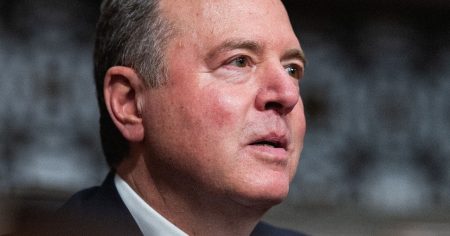When news first broke about Elon Musk’s tech takeover of the United States government, a number of people who had spent years trying to transform federal IT practices were surprisingly hopeful. Maybe, they dreamed, Elon Musk and his team at the Department of Government Efficiency (DOGE) would provide a long-needed jolt to an intransigent and antediluvian bureaucracy.
“It’s beyond debate that a more aggressive approach was necessary if we were ever going to make any progress in our lifetimes,” says Mikey Dickerson, who was the founding administrator of the United States Digital Service, which has now been refashioned into Musk’s US DOGE Service. (He left in 2017, before Trump was inaugurated the first time.) Dickerson says the executive order that Trump issued on day one of his second term, which established DOGE as a temporary organization within the government, was actually something he would have liked to see in Obama’s founding charter for the agency. He particularly liked the paragraph that forced agencies to give USDS teams access to systems and records. “That wouldn’t have been a magic bullet, but it would have created a strong presumption that they needed to cooperate,” he says. “We didn’t really have that, so it was pretty much optional whether anybody wanted to work with us.”
Some of the outgoing leaders of the government tech team, who were both proud of their accomplishments and frustrated by their inability to truly transform the opaque mess of federal IT, shared similar hopes. Outgoing USDS director Mina Hsiang called DOGE’s power “a tremendous opportunity.” Former federal chief information officer Clare Martorana expressed excitement that the order would force agencies to share budget data with DOGE, seeing it as an opportunity to pull back the shroud and finally figure out where these agencies hide waste. This information could inform wise decisions on what needs cutting, with the North Star being value to the American people. “I’m trying very hard to be optimistic about it,” she told me.
Before the inauguration, Jennifer Pahlka, former deputy chief technology officer under Obama and one of the USDS founders, wrote an essay called “Bringing Elon to a Knife Fight,” which summed up the feeling: “A lot of the government tech community … don’t see DOGE as their savior, but they are feeling vindicated after years of shouting into the void.”
If any of those former officials really believed that Musk was going to run with the opportunity to constructively reform the government, those fantasies have now been shattered. Musk and DOGE brought in a team of young techies and experienced executives who could have seized the moment to focus on making government work better. But to date they have used their access and power to indiscriminately drain the federal workforce and defund programs for ideological reasons, seemingly without giving even casual thought to the consequences. Yes, Musk professes to be a champion of the people against the bureaucratic state: “If the bureaucracy is in charge, then what meaning does democracy actually have?” he asked during a bizarre Oval Office appearance this week while Trump looked on and Musk’s 4-year-old son X fidgeted. But the actions actually taken by DOGE don’t sync with this sentiment, especially when the moves seem to contravene measures passed by Congress and signed into law. That’s not terribly democratic. “I think government is a good thing, and it needed massive transformation, far more quickly than anyone in political leadership had any appetite for,” Pahlka tells me. “Since we didn’t do it, this seems to be what we’re getting.”
Ann Lewis, who until late last year headed the Technology Transformation Services, an agency devoted to using modern tech to make government accessible to its citizens, also tried at first to see the DOGE takeover in a positive light. It didn’t take long for that light to dim. “The model of bringing in private-sector people who have a fresh perspective and skills and who want to help is a great idea,” she tells me. “But we’re not seeing people from the private sector with lots of experience who want to understand how everything works.”
Read the full article here















